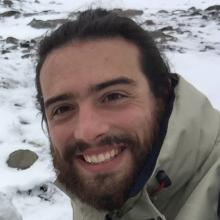English
Claudia Fontana is a biologist with a bachelor's degree in Biological Sciences from the from University of Oeste de Santa Catarina (UNOESC). She earned her Ph.D. in Biology: Diversity and Wildlife Management from the University of Vale do Rio dos Sinos (UNISINOS) and a master's degree in Environmental Engineering from the Fundação Universidade Regional de Blumenau (FURB).

Her expertise spans Forest Ecology, Dendrochronology, and Wood Anatomy. Currently, she is immersed in postdoctoral research at the University of São Paulo - Escola Superior de Agricultura Luiz de Queiroz - USP/ESALQ. Her research employs a multiproxy approach in dendrochronology, applying wood anatomy techniques, X-ray microdensitometry, radiocarbon, and stable oxygen isotope 18 analysis to comprehend how variations in local and global climates impact the growth of tropical and subtropical trees. During this internship facilitated by the PAGES-IAI Programme, Cláudia Fontana aims to establish a new tree-ring chronology of Araucaria angustifolia with the following objectives: i. Assist in dating floating chronologies; ii. Determine if the growth rate is correlated with local meteorological data (temperature and precipitation). iii. Test whether variations in the Southern Oscillation Index (SOI) affect the local climate and impact the growth rate of A. angustifolia. The findings from this research will be incorporated into the broader body of knowledge, collaborating with the results of other researchers. This collective effort aims to contribute to the dating of the largest trees in the Atlantic Forest, Brazil.
Versión en español
Claudia Fontana es bióloga y graduada en Ciencias Biológicas por la Universidad del Oeste de Santa Catarina (UNOESC). Obtuvo su doctorado en Biología: Diversidad y Manejo de Vida Silvestre en la Universidad de Vale do Rio dos Sinos (UNISINOS) y una maestría en Ingeniería Ambiental en la Fundação Universidade Regional de Blumenau (FURB). Su experiencia abarca la ecología forestal, dendrocronología y anatomía de la madera. Actualmente, se encuentra inmersa en investigación postdoctoral en la Universidad de São Paulo - Escola Superior de Agricultura Luiz de Queiroz - USP/ESALQ. Su investigación emplea un enfoque multiproxy en dendrocronología, aplicando técnicas de anatomía de la madera, microdensitometría de rayos X, radiocarbono y análisis de isótopos estables de oxígeno 18 (18O) para comprender cómo las variaciones en los climas locales y globales impactan el crecimiento de los árboles tropicales y subtropicales. Durante esta pasantía facilitada por el Programa PAGES-IAI, Cláudia Fontana pretende establecer una nueva cronología de anillos de Araucaria angustifolia con los siguientes objetivos: i. Ayudar a fechar cronologías flotantes; ii. Determinar si la tasa de crecimiento está correlacionada con los datos meteorológicos locales (temperatura y precipitación). iii. Investigar si las variaciones en el Índice de Oscilación del Sur (SOI) afectan el clima local y la tasa de crecimiento de A. angustifolia. Los resultados de esta investigación se incorporarán a un cuerpo de conocimiento más amplio, colaborando con los resultados de otros investigadores. Este esfuerzo colectivo tiene como objetivo contribuir a la datación de los árboles más grandes de la Mata Atlántica en Brasil.

